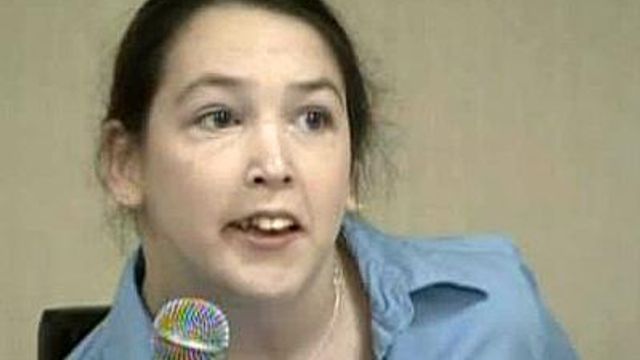Advocates: Mental health system in state of emergency
Advocates say budget cuts have put the state's mental health system in a crisis, and they want Gov. Bev Perdue to call lawmakers into a special session to fix the problem.
Posted — Updated"We know that this is a man-made crisis. We know also that it can be fixed," Jennifer Mahan, chairwoman of The Coalition, said Wednesday.
The Coalition is a group of 42 organizations that advocate and provide services and support for nearly 340,000 people in the state with developmental disabilities, mental illnesses and addictive diseases.
The group estimates that critical services to these patients will be cut by more than 25 percent and that anywhere from 10,000 to 20,000 employees who provide those services will lose their jobs.
"We have to come together as a state and all stand ready to pitch in, and we ask the governor and General Assembly to take action," Mahan said.
Earlier this year, lawmakers cut state funding for the Department of Health and Human Services by approximately $1.7 billion to help close a $4.6 billion budget gap.
About $65 million to $75 million in state funds were cut from the department's community services budget. The Coalition says that cuts in Medicaid put the total to about $500 million.
The request for a special session comes one day after DHHS, at Gov. Bev Perdue's request, reallocated $15 million to maintain essential services and to offset the impact of cuts to the community – a right step, advocates say.
"The Legislature needs to take more steps," John Tote, executive director of the Mental Health Association in North Carolina, said. "The economic disaster is enormous. The service disaster is worse."
He said that DHHS has about $275 million allocated for services, which equates to about $70 per patient per month.
"When you begin to put quantifying numbers on real lives, the state of North Carolina is significantly behind where it should be in helping those people with these significant disabilities," Tote said.
Stories from people at risk of getting services cut or eliminated, the group says, are what it hopes will help send its message to lawmakers.
Kelly Woodall, a 26-year-old graduate student with cerebral palsy, says she receives a little less than 20 hours of support a week to help her with daily tasks such as eating and bathing. She had qualified for an additional 28 hours but will not get those because of the cuts.
She lives alone and worries that without the additional hours, she might be forced to move into a facility.
"How am I supposed to live my life in a nursing home?" she said Wednesday. "This is awful. I should be able to live in my own apartment and be self-sufficient. I ask that Gov. Perdue and the Legislature, please, help me stay in my own place."
Advocates say they don't believe lawmakers understood the full impact budget cuts would have, but House Majority Leader Hugh Holliman, D-Davidson, says legislators are sympathetic, but without more money to work with, he doesn't believe a special session will help.
"The problem is (that) there is no well of money to go to," he said.
Perdue, meanwhile, has given no indication that she will call a special session.
"Gov. Perdue has asked (DHHS) Sec. (Lanier) Cansler to continue working with patients, families and caregivers across the state to manage the budget reductions and maintain essential services as much as possible," the governor's spokeswoman, Chrissy Pearson said in a statement.
"There are real people behind the numbers, and we all knew the $1.7 billion in cuts to the DHHS budget would be hard. As we tighten our belts in response to the current economic situation, state agencies are working to find ways to continue serving our citizens to the fullest extent."
Cansler, meanwhile, spent Wednesday updating members of a legislative oversight committee about the reductions.
DHHS has implemented about a third of the budget cuts for the fiscal year, he has said, and a majority of the remaining will likely occur within the next 60 days.
• Credits
Copyright 2024 by Capitol Broadcasting Company. All rights reserved. This material may not be published, broadcast, rewritten or redistributed.





